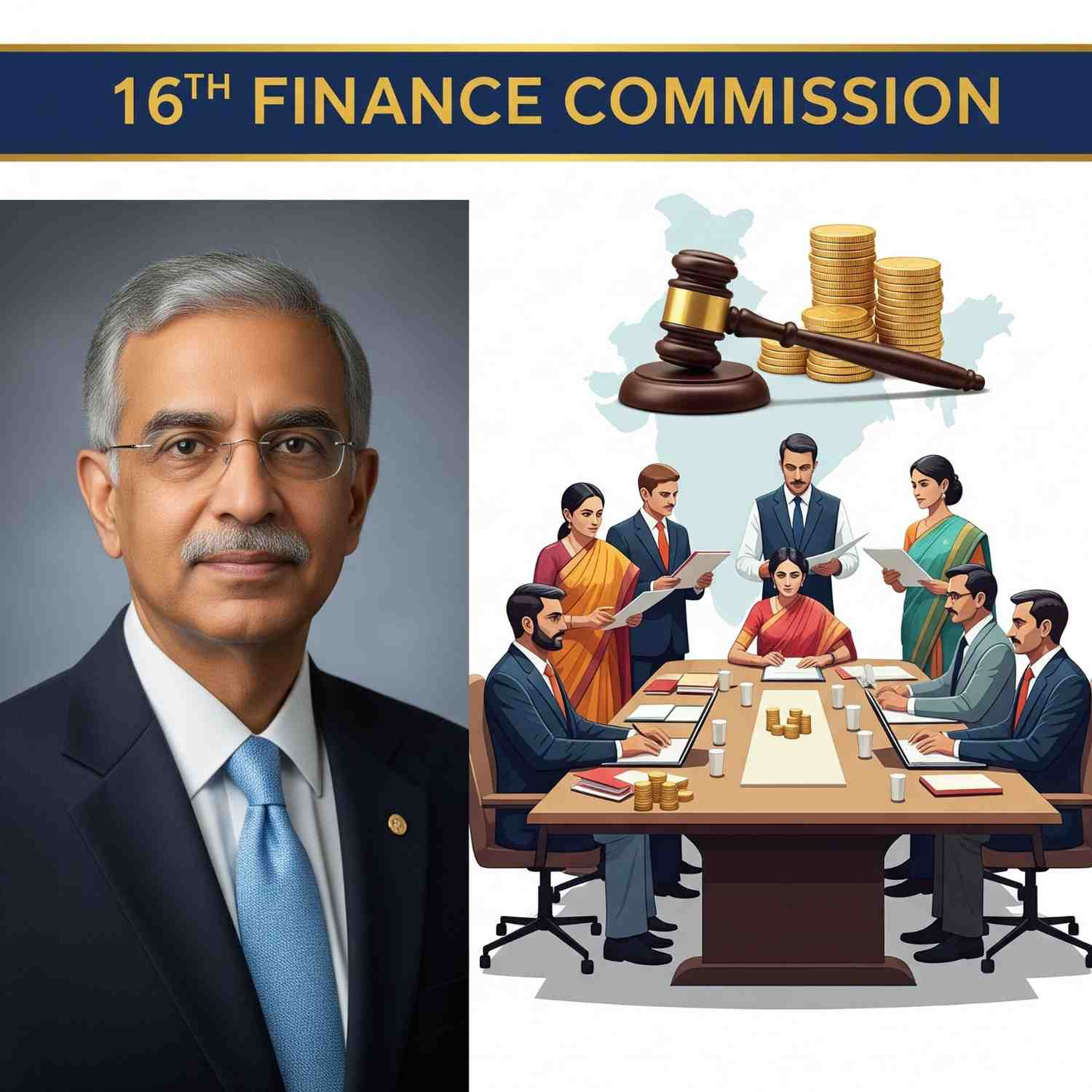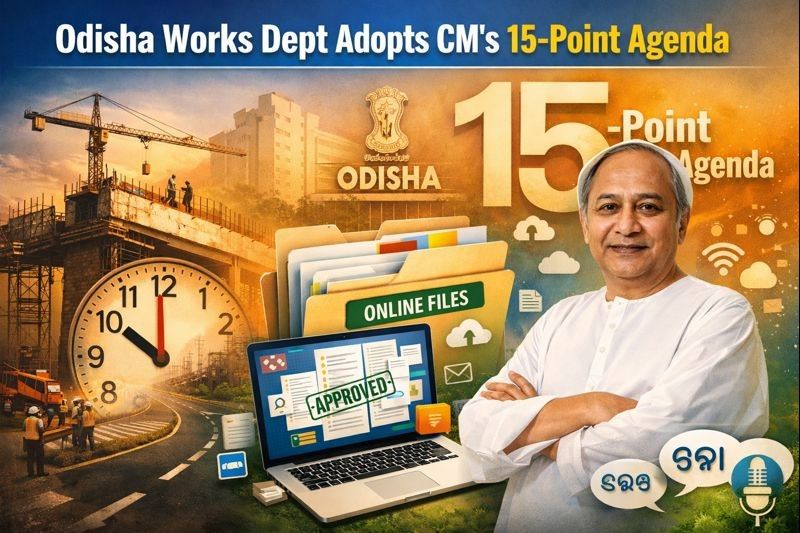
India’s fiscal landscape is set to be reshaped by the recommendations of the 16th Finance Commission, a constitutional body tasked with defining the financial relationship between the Union government and the states. Constituted on December 31, 2023, under Article 280 of the Constitution, this commission holds the crucial responsibility of recommending the framework for tax devolution and grants for a five-year period commencing April 1, 2026.
Mandate and Key Responsibilities:
The primary mandate of the 16th Finance Commission, as outlined in its Terms of Reference, revolves around ensuring equitable and efficient resource distribution across the country. Its key responsibilities include:
- Vertical Devolution: Determining the share of the “net proceeds of taxes” to be distributed between the Union government and the states. This involves assessing the overall divisible pool of taxes, including GST and income tax.
- Horizontal Distribution: Laying down the principles for the allocation of tax proceeds among the states. This is a complex exercise that considers various criteria such as population, area, forest and ecology, income distance, and demographic performance, aiming to address regional disparities.
- Grants-in-Aid: Recommending the principles governing grants-in-aid from the Consolidated Fund of India to the states. These grants are crucial for bridging fiscal gaps, especially for revenue-deficient states, and often include sector-specific or state-specific grants for areas like health, education, and infrastructure.
- Local Bodies Support: Proposing measures to augment the Consolidated Fund of a state to supplement the resources of Panchayats and Municipalities, thereby strengthening grassroots governance.
- Disaster Management Financing: Reviewing the existing arrangements for financing disaster management initiatives, with reference to the funds constituted under the Disaster Management Act, 2005, and making appropriate recommendations.
- Fiscal Roadmap: Advising on fiscal targets, including deficits and debt levels, for both the Centre and the states to ensure long-term fiscal sustainability.
Composition of the Commission:
The 16th Finance Commission is chaired by Dr. Arvind Panagariya, former Vice-Chairman of NITI Aayog. He is supported by a team of distinguished members:
- Ajay Narayan Jha (Full-time Member, former Member, 15th Finance Commission)
- Annie George Mathew (Full-time Member, former Special Secretary, Department of Expenditure)
- Manoj Panda (Full-time Member, former Director, Institute of Economic Growth)
- Soumya Kanti Ghosh (Part-time Member, Group Chief Economic Advisor, State Bank of India)
- Ritvik Ranjanam Pandey (Secretary)
(Note: There have been some changes in member appointments; as of recent updates, T. Rabi Sankar was appointed as a part-time member, consequent to the resignation of one of the full-time members.)
Timeline and Challenges:
The 16th Finance Commission commenced its operations shortly after its constitution in December 2023, holding its first meeting in February 2024. The Commission has been actively engaging with various stakeholders, including state governments, to gather their perspectives and demands. States, for instance, have commonly advocated for a higher share in central tax devolution and the inclusion of cesses and surcharges in the divisible pool.
The Commission is mandated to submit its report by October 31, 2025, ensuring that its recommendations are ready for implementation from April 1, 2026.
The task before the 16th Finance Commission is formidable, encompassing several critical challenges:
- Balancing Equity and Efficiency: Striking a balance between providing adequate support to less developed states and incentivizing fiscal performance among the states.
- Addressing Fiscal Stress: Grappling with the fiscal challenges faced by both the Union and state governments, particularly in the post-pandemic era.
- Impact of Cesses and Surcharges: Devising a mechanism to address the growing share of Union revenue from cesses and surcharges, which are currently not part of the divisible pool, thereby impacting state revenues.
- Reforming Centrally Sponsored Schemes (CSS): Examining the role and impact of Centrally Sponsored Schemes on state autonomy and finances.
- Mitigating ‘Freebie’ Culture: Potentially offering recommendations to balance welfare initiatives with long-term fiscal health.
- Urbanization Challenges: Addressing the financial woes of urban local bodies and proposing sustainable financing models for rapidly urbanizing areas.
The recommendations of the 16th Finance Commission will play a pivotal role in shaping India’s cooperative federalism, ensuring a fair and sustainable distribution of resources, and promoting balanced growth across the nation for the next five years.
You stopped this response






